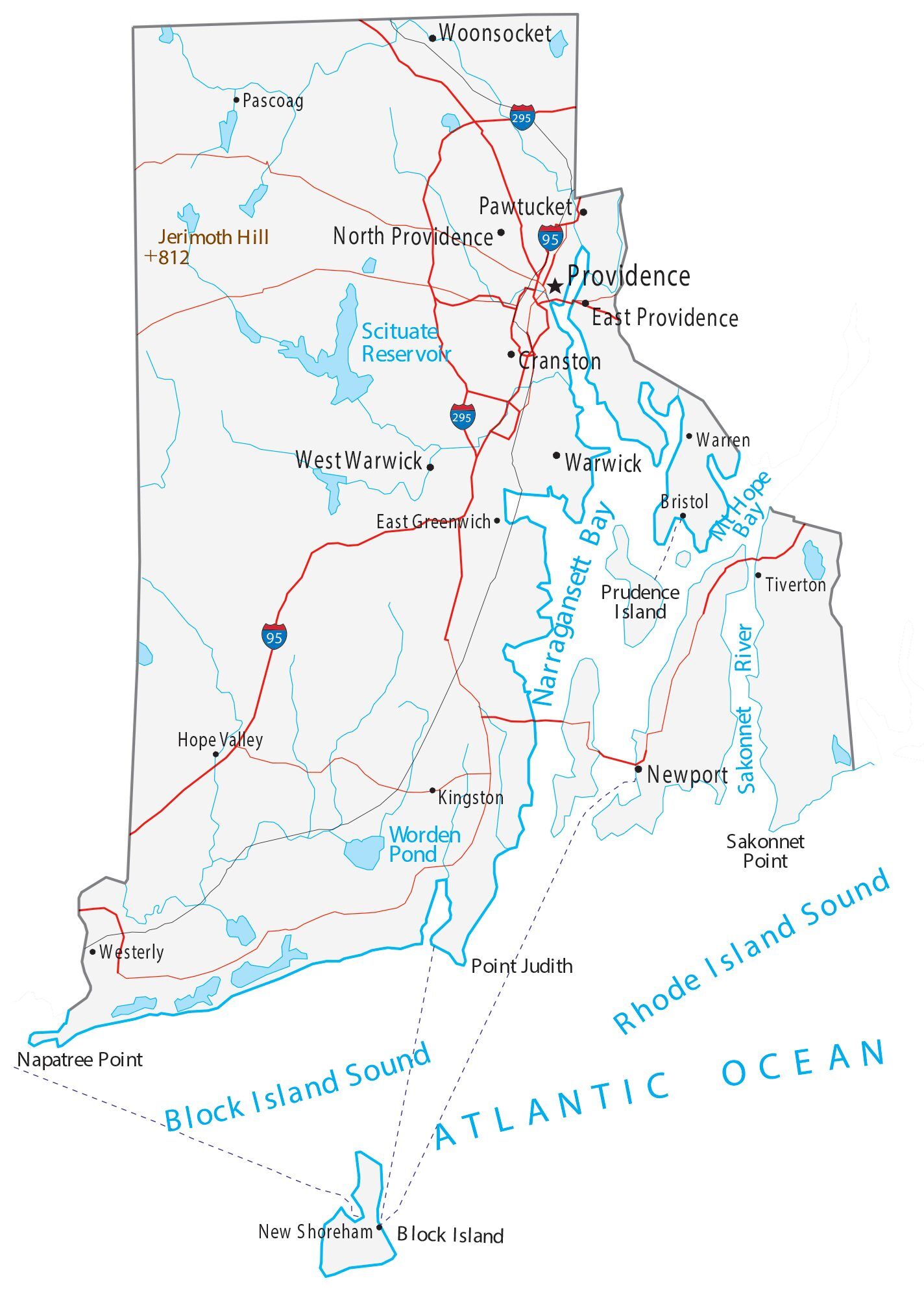Septic systems are essential for properties without access to municipal sewage systems. In Rhode Island, understanding the septic licensing process and the associated regulations is critical for both compliance and environmental protection. Therefore, this guide will walk you through the key aspects of obtaining a Rhode Island Septic License, covering everything from necessary permits to costs and maintenance requirements.
State-Specific Regulations
Installation Permits
To install or repair a septic system in Rhode Island, you need to obtain a septic system permit. This process involves:
- Application Requirements: Property owners must submit detailed site plans and soil evaluations conducted by a licensed designer.
- Permit Costs: Typically, fees range from $150 to $300 depending on the project size and complexity.
- Approval Process: The Rhode Island Department of Environmental Management (DEM) oversees permit issuance, ensuring compliance with state and local regulations.
Septic Tank Size and Placement
Rhode Island septic tank laws specify tank sizing and placement to protect public health and the environment. Key guidelines include:
- Tank Sizing: Tank size is determined by household size and wastewater flow, with a minimum capacity of 1,000 gallons for most residential properties.
- Placement Requirements: Tanks must be located at least 50 feet from wells, 25 feet from property lines, and a safe distance from water bodies.
- Drain Field Standards: The drain field must be appropriately sized and located in well-draining soils to avoid groundwater contamination.
Wastewater Disposal
The Rhode Island wastewater code requires proper treatment and disposal of all wastewater. This includes:
- Separation Standards: Systems must maintain a minimum distance from groundwater to prevent contamination.
- Advanced Treatment Systems: In environmentally sensitive areas, advanced systems may be required to meet stricter discharge limits.
Maintenance and Pumping
Routine maintenance is critical to keeping your septic system in compliance. The Rhode Island health department guidelines recommend:
- Pumping Frequency: Pumping every 3 to 5 years for average households, with adjustments based on system usage.
- Inspections: Regular inspections by certified professionals to identify potential issues early.
Compliance Information
Potential Fines and Penalties
Failure to comply with septic regulations in Rhode Island can, therefore, result in significant penalties, including:
- Fines: Property owners may face fines ranging from $500 to $5,000 per violation.
- Mandatory Repairs: Non-compliant systems must be repaired or replaced, often at the owner’s expense.
Environmental Protections
Rhode Island wastewater management laws emphasize protecting sensitive ecosystems. For instance :
- Coastal Protection Zones: Stricter regulations apply near coastal areas to prevent pollution in Narragansett Bay.
- Wetland Safeguards: Septic systems near wetlands must meet enhanced standards to preserve these habitats.
Cost Information
Permit Fees
The cost of obtaining RI septic permits typically ranges from $150 to $300, depending on the specifics of the project. Additional fees may apply for advanced systems.
Pumping Costs
Routine septic pumping in Rhode Island costs between $200 and $400. Pricing varies based on tank size and accessibility.
Installation Estimates
Septic installation in Rhode Island generally costs between $8,000 and $15,000. Advanced systems or challenging site conditions may push costs higher.
Local Resources & Contact Information
State Agencies
- Rhode Island Department of Environmental Management (DEM): Responsible for issuing septic system permits and overseeing regulations.
- Website: DEM Official Site
- Phone: (401) 222-4700
Local Health Departments
Local health departments enforce Rhode Island septic tank laws and provide resources for homeowners. Contact your town or city health office for assistance.
Certified Septic Professionals
Engage licensed professionals for septic installation in Rhode Island. A full list of certified providers is available on the DEM website.
Contact
RIDEM
235 Promenade Street
Providence, RI 02908-5767
401-222-6800
Supportive Resources
Helpful Links
- Rhode Island Health Department Guidelines: Comprehensive guidelines for septic system maintenance and compliance.
- Septic System Handbook: A downloadable guide to understanding septic system care and regulations in Rhode Island.
Infographics and Tools
- Septic system sizing calculators and maintenance reminders can simplify compliance efforts. Check the DEM website for resources.
Conclusion
Obtaining a Rhode Island Septic License and adhering to the state’s septic regulations are essential for protecting public health and the environment. By staying informed about RI septic permits, maintenance requirements, and costs, property owners can ensure compliance and extend the life of their systems. For further assistance, reach out to certified professionals or consult the Rhode Island DEM for guidance.
Rhode Island Septic License FAQ: Everything You Need to Know”
Do I Need a Permit for a New Septic System in Rhode Island?
Yes, all new septic systems or system components in Rhode Island require a permit from the Rhode Island Department of Environmental Management (DEM). Repairs to building sewers, such as pipes between the house and the tank, typically do not need DEM authorization RIDEM Septic Design RI.
What Types of Permits Are Available for Septic Systems in Rhode Island?
The DEM offers three main permit types:
- New Construction: For building a new structure or increasing system usage by adding more than one bedroom.
- Alteration: For minor adjustments like adding one bedroom or changing the property use.
- Repair: For fixing failed systems or replacing cesspools without increasing wastewater flowRIDEM.
How Often Should Septic Systems Be Inspected in Rhode Island?
In Rhode Island, septic systems should generally be inspected every 2-5 years, depending on their size, type, and household usage. Advanced systems often require annual inspections as a condition of approval to ensure proper functioning RIDEM.
How Do I Know If My Septic System Has Failed?
A failed system shows signs like backups, sewage on the ground surface, or contamination of nearby water supplies. Rhode Island requires professional inspections to determine system status under state rules RIDEM
Are Septic Additives Recommended in Rhode Island?
No. Research, including studies in Rhode Island, shows that additives are generally ineffective and may even damage your septic system RIDEM.
What Does It Cost to Install or Replace a Septic System in Rhode Island?
Installing a new system in Rhode Island typically costs between $10,000 and $15,000. However, advanced systems, often required near water bodies, may cost more. Replacing a cesspool can range in price depending on system type and location RIDEM.
Is Financial Assistance Available for Septic Systems in Rhode Island?
Yes, Rhode Island homeowners may qualify for low-interest loans under the Community Septic System Loan Program. Check with your municipality to determine eligibility and participation
What Are Rhode Island’s Rules for Cesspool Replacement?
Cesspools must be replaced within one year of a property sale unless exempt (e.g., transfers between immediate family members). This rule ensures compliance with state wastewater regulations RIDEM.
Do I Need a Soil Evaluation for a Septic System in Rhode Island?
Soil evaluations are required for most new construction and alteration permits in Rhode Island. However, for repairs, evaluations might be waived if prior soil data from nearby properties is sufficient
Who Is Responsible for Upgrading a Cesspool in a Rhode Island Property Sale?
In Rhode Island, upgrading cesspools is a negotiable responsibility between the buyer and seller. However, the property owner (buyer) must complete the upgrade within a year of the sale to avoid penalties
Septic Regulations in Rural Areas: Essential Guide for Rural Property Owners
The Role of Perforated Pipes in Drain Fields
What Happens During a Pumping Service?
Septic Tanks vs. Sewer Systems | Choosing the Right Option
Directory | Virginia Septic Service Providers | Part 2
Directory | Virginia Septic Service Providers : Best Professionals | Part 1







